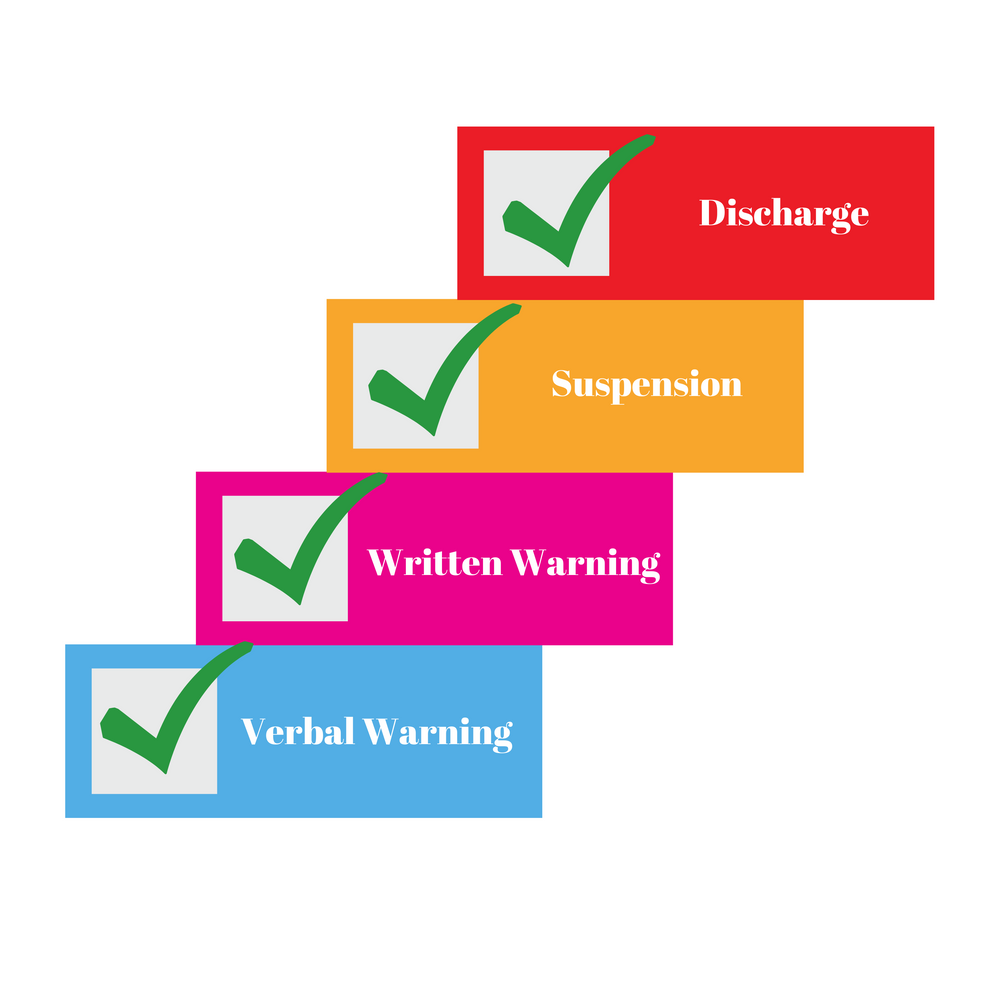|
By L. Spriggs When disciplining employees, an employer must issue discipline that allows the employee to correct or improve their behavior. As teachers, we know that classroom discipline should seek to correct misbehavior, not punish or humiliate, and workplace discipline should work the same way. This is why arbitrators generally agree that employers should apply the lowest penalty that is likely to prevent further offenses. There are exceptions to this standard, of course, that fall under the category of an egregious offense, which is basically something so heinous that the administration could fire you on the spot. People always like specific examples of what constitutes an egregious offense, so here are a few things not to do. Don't batter another teacher, student, or administrator with an open-handed slap even if they made an inappropriate joke about your significant other. When collecting money for a fundraiser, don't take your "cut off the top" before depositing the cash. Don't sell a student one of your special gummy bears even though they told you they have a medical marijuana card and just forgot to take their daily dose before they left for school. Don't falsify your transcripts using photoshop and a custom embosser you ordered online from a Chinese website in order to "fast-track" your horizontal movement on the pay scale because you believe ''they just hand out diplomas like participation trophies these days anyway" and "if they'll give [name redacted] a doctorate" then you definitely deserve one but don't think you should have to pay tens of thousands of dollars to prove it. Egregious offenses aside, progressive discipline usually requires a verbal or written warning first, followed by a suspension or two, and then dismissal. After a verbal or written warning, if an employee becomes a repeat offender, the employer can then issue a more substantial punishment as long as the prior discipline was documented and actually resulted in discipline, since "[i]t's unfair to base punishment on an event that the employee was not able to challenge in the grievance process," according to veteran labor lawyer Robert M. Schwartz. Any current punishment should also be somewhat related to any previous discipline, and discipline must be clearly explained to the employee either in written form or during the grievance process. Finally, some cases may fall into the "last-straw" category, which is a situation where an employee "commits a continuous series of minor transgressions" and the employer considers the employee to be "hopelessly incorrigible" (We all know the type.) In such a case, an "arbitrator may uphold a last-straw discharge if the pattern of unsatisfactory conduct is lengthy, reprimands have been issued, counseling has been attempted, a final warning was provided, and the employee committed an additional improper act (Schwartz)." Comments are closed.
|
Categories
All
Archives
May 2023
Editor:
Proud alumnus, union member, and educator in District #201 since 2006. Contributors
Dr. Hentze is the author of High Finance with Hentze, a monthly blog that provides news about District 201's current financial state. |

 RSS Feed
RSS Feed